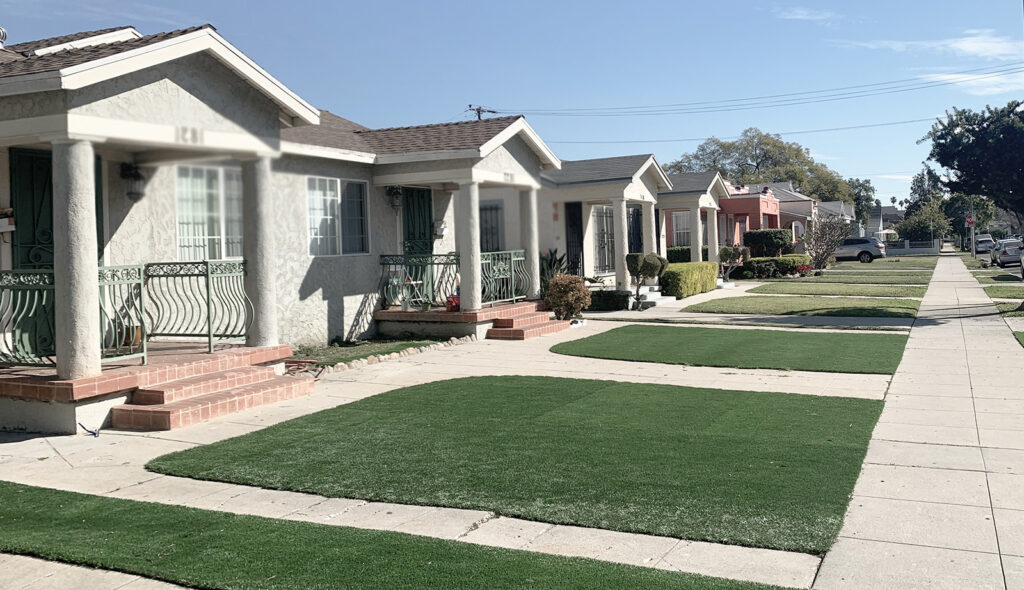The Basics
Property Assessed Clean Energy (PACE) was conceived over a decade ago as a way to help homeowners access financing to install otherwise prohibitively expensive clean energy upgrades.
Homeowners who want to install energy efficient home improvements can apply for PACE loans from finance companies or “PACE Administrators” (which include Renew Financial, FortiFi Financial, Ygrene Enery and PACE Funding Group) in order to pay for the products. PACE loans are often sold door-to-door by contractors. The loans require no money down but are secured by the equity in the homeowner’s property, just like a traditional mortgage. The payment amount is added onto the homeowner’s annual property tax bill as a special line-item assessment.

Because these loans are paid as part of a homeowner’s property taxes, they get “first lien” position, which means that if the home is sold or foreclosed upon, PACE loans get paid off first before any other secured loans such as a mortgage.
The assessment amount includes the cost of the improvements plus capitalized interest and financing charges, and is typically repaid over 10-25 years. In our experience, most homeowners can expect to pay back roughly twice the amount they borrowed.
A homeowner who cannot afford to pay the increased property taxes — either directly to the County or as part of their mortgage payment — will face foreclosure.
Program flaws, such as gaps in consumer protection and reliance on door-to-door salespeople, have led to homeowners being defrauded, and to the local governmental sponsors of some of the state’s largest PACE programs abandoning the program.
A Brief History of California PACE
Below is a brief overview of key pieces of legislation related to PACE over the past few years.
However, NONE of these bills:
- Required energy audits to make sure PACE loans were paying for necessary and appropriate energy efficient home improvements
- Prevented contractors from being paid for shoddy work or no work
- Assisted homeowners already defrauded under PACE programs
- Fully protected seniors from predatory home improvement financing
2021
AB 790(Quirk-Silva) Clarifies the existing protections from door-to-door sales of property-secured home improvement financing under the Property Assessed Clean Energy program, which is commonly marketed door-to-door.
2018
AB 2063 (Aguiar-Curry). Required that the determination that a homeowner had the ability to repay a PACE loan be made before the loan could be financed.
AB 1087 (Roth) Required the Department of Financial Innovation and Protection (formerly the Department of Business Oversight) to list on its website the identities of enrolled and terminated PACE contractors.
2017
AB 1284 (Dabaneh). Required PACE program administrators to be licensed by the Department of Financial Protection and Innovation (formerly the Department of Business Oversight) and provided for agency oversight of contractors soliciting property owners. Added a requirement that PACE borrowers be reviewed for their ability to pay back a PACE loan.
SB 242 (Skinner). Required PACE program administrators to orally confirm the key terms and conditions of the assessment contract with a property owner, and that agreements be translated in the preferred language of the property owner.
2016
AB 2693 (Dabaneh). Required some disclosures aimed at consumer protection and a three-day right to cancel PACE assessment contracts.
2014
AB 2597 (Ting). Increased the amount PACE loans could be made for, to up to 15% if the property value.
2013
SB 96 (Budget Act). Set aside $10 million for loss reserve fund to address the risks of foreclosure.
2010
SB 77 (Pavley). Established that to be eligible for a PACE loan the owner only had to be current and not in bankruptcy and that loans could be for up to 10% of the property value; permitted Cities and Counties to use municipal bond measures as a source for PACE financing.
Tips for Homeowners Considering Green Energy Financing
- Beware advertising for a free government program, or low-cost financing for Additional Dwelling Units. If it sounds too good to be true, it probably is.
- Get multiple estimates before deciding on a contractor.
- Beware of contractors who offer illegible contracts or do not give you copies of documents.
- Beware of contractors who try to rush you through signing the home improvement contract or financing application.
- Be careful about touching any electronic device presented to you by a contractor – the device may register your touch as an electronic signature, so make sure you understand why you are being asked to touch or click on any electronic device.
- Be sure to read everything before you sign anything. You have a right to request paper copies of all documents.
- Check that your contractor has a valid license and, if they are selling PACE financing, they are authorized to do so. You can check the status of the contractor’s business license here. You can confirm they are able to sell PACE financing here. It is a good idea to get multiple estimates before deciding on a contractor.
- Beware of contractors who try to push you to overestimate your income or the value of your home in the finance application.
- Beware of a contractor who tells you what to say or how to answer questions about your home improvement contract or financing. We recommend you do not answer questions about your financing on the phone when the contractor is present.
- Contractors should not start work before the financing application has been approved and processed.
- Know that, in general, you have at least three business days in which to cancel the home improvement contract in writing if you change your mind (five business days if you are 65 or older).
- Make sure to ask for copies of all permits and check that those permits have been “finaled” by an inspector who has signed a document to say the work is up to code.
- Do not sign any documents or represent to anyone that work has been completed if the work is not completed, or not completed to your satisfaction.
- Beware of a contractor who tries to pressure or harass you into signing any documents, including a “completion certificate”, that are not accurate.
- If your contractor did not complete the job in the timeframe promised or in a workmanlike manner, you can make a complaint to the CSLB.
- If you were approved for PACE financing without your knowledge or consent, or the terms do not match what you were told, you can make a complaint to the DFPI or take other action.
